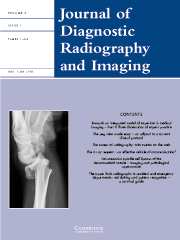Article contents
towards an integrated model of expertise in medical imaging – part i overview and two dimensions of expert practice
Published online by Cambridge University Press: 14 September 2005
Abstract
the nature of professional expertise has been widely debated in the literature. however it has been examined primarily from a dichotomy of perspectives – either from an experiential or a cognitive focus, without the attempt to integrate these, and other aspects of expertise into an integrated and coherent model. this article series explicates the nature of professional expertise specifically in the field of medical imaging. it represents a section of the outcomes of a larger study which formulated and illustrated an integrated model of professional expertise also applicable to other professions. it has been written in two parts, part i of which overviews the study and presents two of the five aspects of expertise identified. part ii presents the other three aspects.
the study used data gathered from interviews and critical incident recording from expert medical imaging practitioners in auckland, new zealand, over an extended time frame.
findings showed that while expertise is situated in the context of practice, it incorporates several dimensions working together in an integrated, seamless fashion through the medium of the individual practitioner. the participants identified and illustrated that expertise in medical imaging is a synthesis of a particular knowledge base, the cognitive processes, personality and internal processes of the practitioner. it manifests through, and builds on, interpersonal relationships with patients and other professionals, and is expressed through the actual doing of professional practice. it is through the reflexive examination of practice and management of change that professionals may transform these integrated aspects into the qualitative state of expertise.
- Type
- original paper
- Information
- Copyright
- © 2005 cambridge university press
- 3
- Cited by




